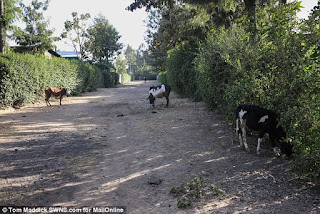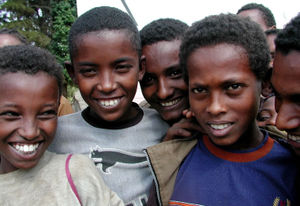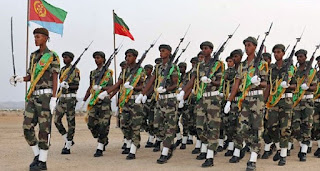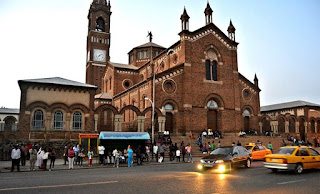Visiting a foreign country is a
dream coming true for many people. And a chance to work in a foreign country is
at a completely different level altogether, especially the Indians.
An entire locality
called Ameerpet in Hyderabad, India survives only on the dreams and aspirations
of Hyderabadis and Telugus waiting to go to USA,
their ultimate dream.
The dime a dozen training institutes
have trained many thousands or even lakhs on various IT skills, computer languages
and certifications. So much, so an exasperated
colleague loudly remarked: “It is not
Ameerpet, it is United States of Ameerpet”. Recently a Telugu movie was made with the title Ameerpet to America! But there
no denying the bubbling and infectious energy of the teachers and the taught in
Ameerpet. It is the ambition, drive, determination of its trainees which are the
grease that moves the wheels of the Ameerpet training institutes!
Any job in USA is okay; families somehow
want their wards to reach the harrowed shores of USA. Once the kids reach USA, peace
reigns in the Indian houses. They can proudly claim “yes my son/daughter too
had gone to USA”. When the boy or girl
returns, they would be US returned, a badge of honour!
With such a scenario getting a job
in any other country including Canada, Australia or even England is looked down
upon. And getting a job offer in Ethiopia, one of the poorest country in the
world! What to say!
Parents and colleagues pity people
who just got African job offers. A colleague’s wife recited an incident in tears.
I believe all her friends said “WHAT!! you are going to Ethiopia. That poor country!” Then they sang a funny Telugu song where the actor says many countries
names lyrically. He says “Ethiopia, Somalia, Nigeria and many other countries
names ……” and the viewers roar in laughter. Her excitement of going to a
foreign country along with her husband was tinged
with anxiety.
Recently one of my ex-colleague
wanted my opinion about going to Ethiopia. I told him that it was a great
country to work. He asked me in a quivering voice “What about Ebola virus and
Zika virus sir, can you assure me that I would not get these diseases”.
I gave him a withering look and said: “not only Ebola, and Zika, there is a
chance of getting yellow fever and malaria”. He fled from my presence. Good riddance
to bad rubbish, Ethiopia does not need chicken-hearted
teachers like him. What it wants and loves are teachers who embrace Ethiopia as
their own and cherish the experiences.
One of my cousins asked my mother “Hemakka, what is there in that country?
Why did Raju (as I am called at home) go
to Ethiopia? No fast cars, no big buildings,
no excitement. And on the top of it very dark people”. Coming from a citizen of
a country (India) which boasts of quite dark people of its own, it was an understatement
of the century!
My mother went onto explain why
her son picked up Ethiopia as a destination, but
my cousin was not convinced. “Why should we go to a country that does not give
brownie points for a kitty party banter!!!” was the reasoning of my cousin.
Mansoor, my colleague from
management department, too was bowled over by Ethiopia and its rustic
ruggedness. He marketed Ethiopia so well to his family members that his brother-in-law
came over for a visit. Mansoor’s brother-in-law got off the plane in Addis
Ababa and recoiled. “Jijaji (brother-in-law)
everyone here is so dark!!!???”. That first impression got stuck into
his mind. He wanted to return to India on the same day. With a lot of difficulty,
he was persuaded to come to Bahirdar. From
that point onwards Mansoor’s brother-in-law withdrew into his shell.
During our initial days in Bahirdar, we did see Mansoor’s brother-in-law. He
was quite withdrawn and not enjoying his stay. We all tried cheering him, but
it was a wasted effort. He cut short his visit and flew back to India.
A wasted opportunity lost to
explore and see an ancient civilisation.
Very few get an opportunity to travel back in time and experience the life of
their parents or their grandparents! We were
the lucky few who were in Bahirdar when it was about to change.
The preferred mode of travel was a
bicycle albeit a geared bicycle glamorously called a helicopter. The trendy
looking bicycles were imported from China and would retail at a mind-boggling price of 1000 to 1200 birr (5000
to 6000 Rs). The blue and white geared bicycles were a big rage and commanded a
good resale value. Many Indians bought the bicycles, used it for two years and
off-loaded it at 700 to 800 birr. It was quite a status symbol to own one.
Listening to the excited chatter on
which bicycle to buy, the usually quiet Dr
Srinivas Inguva wryly commented “In India,
we move from a bicycle to scooter to car. We already have a car in India, and we are going from a car to bicycle, and our entire Indian community is very excited.”
That statement stopped us dead in our tracks. How true!!!
Padma
told the stunned Indian community that her mother wants to come to Ethiopia.
That shook them out of the stupor. ‘Yes visiting her daughter, must be missing
her and the grandchildren’. They almost fainted when they were told that Padma’s
mother stays in USA. “Coming from USA to Ethiopia” they could not comprehend.
They were stunned!
“Why madam, what is there in Ethiopia?”
we could sense the despondence in their
voice. That triggered Padma. She went
onto explain to the gaping audience “She is coming on her own. She is excited
to visit Ethiopia. She already has researched
Ethiopia and knows some of the customs
and culture.
 |
| Ethiopian Restaurant in USA |
And to top it all, she along with
my brother and his wife have already visited Ethiopian restaurants in San
Francisco and have eaten and loved Ethiopian food, including Injira and the different
types of wats” This was the killer punch. The audience was overawed “here we are in Bahirdar, and we have not
even tasted Injira and Padma’s mother has already tasted and liked Injira that
too in distant SFO, USA.”















































